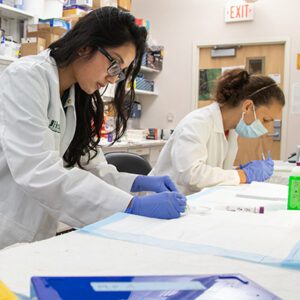Areas of Research
Cell Therapy
To provide potential benefits by replacing lost neurons, promoting regeneration of existing neurons, and filling in the spinal cord cavity to minimize further damage and inflammation.
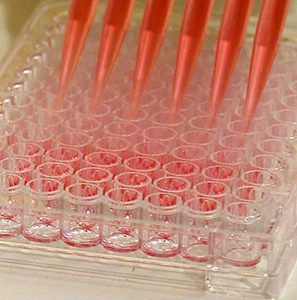
Drug Discovery
There is a need to identify and evaluate novel compounds that protect and promote reparative processes after injury. The latest technologies are used to screen hundreds of millions of compounds to identify those with potential to improve function in people living with neurological disorders.
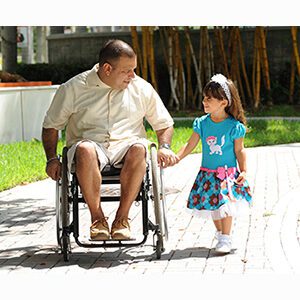
Fertility
Researchers at The Miami Project are studying the potential causes of infertility among men who have sustained a spinal cord injury. Most men, but typically not women, experience infertility because of impaired erectile function, an inability to ejaculate, and poor semen quality.
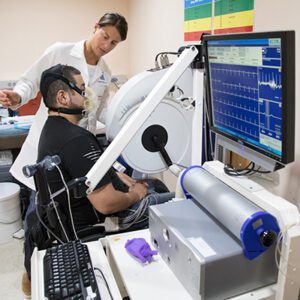
Lifestyle
Researchers interested in maintaining optimal health throughout the lifespan investigate how engaging in physical activity, healthy eating, and mindfulness benefit immediate and long-term goals of optimized health and function of persons with SCI.

Neural Engineering
Neural Engineering is a research discipline using engineering techniques to study, repair, replace, or enhance neural systems. Neural Engineering commonly involves neurotechnology devices, such as neural interfaces for stimulation or recording, brain-computer interfaces, or neuroprosthetics.
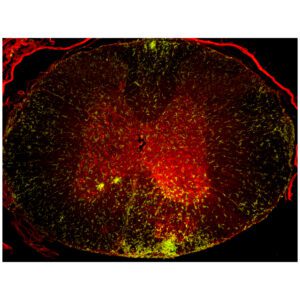
Neurodegenerative Diseases
Neurodegenerative diseases including Alzheimer’s disease, Parkinson’s disease, amyotrophic lateral sclerosis, chronic traumatic encephalopathy and multiple sclerosis are characterized by deposition of misfolded proteins leading to a slow progressive loss of neurons, loss of myelin and deficits in brain and spinal cord function.
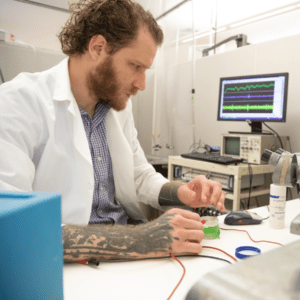
Neurophysiology
Research in the area of neurophysiology focuses on how the nervous system functions. Scientists at The Miami Project use neurophysiological tests to investigate impulses between nerve cells and their communication with muscles to control voluntary movement.
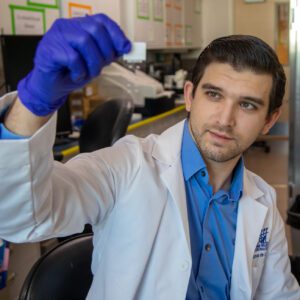
Neuroplasticity
Neuroplasticity is the nervous system’s ability to adapt its structure and reorganize itself to form new neural pathways. This ability is how an uninjured area of the brain can compensate for functions controlled by an injured area.
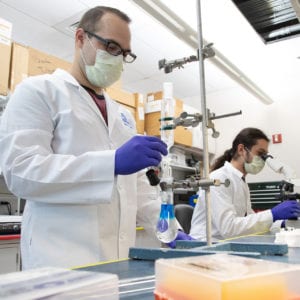
Neuroprotection
Researchers at The Miami Project are identifying the early and progressive injury processes that occur after spinal cord injury and result in irreversible damage. Develop and test novel treatments to minimize damage and promote recovery.
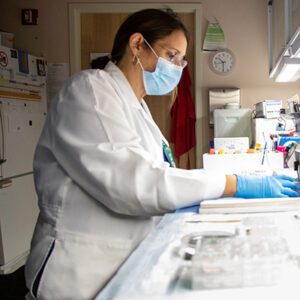
Neuroregeneration
Neuroregeneration research is aimed at promoting the regrowth and repair of nervous system tissues. This includes the generation of new neuronal cells as well as promoting axon regrowth and remyelination of damaged neurons.

NUTRITION
Several Miami Project researchers are evaluating the role nutritional supplements may have on improving function after spinal cord injury. Studies in animals have shown that dietary restriction has detrimental effects on spinal cord repair and that calorie intake can impact early recovery.
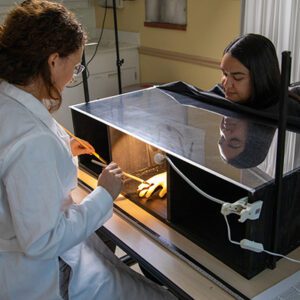
PAIN
Many people with spinal cord injury experience long-lasting pain that can be severe and debilitating. Miami Project researchers are examining the effects that neuropathic pain has on individuals’ daily lives.
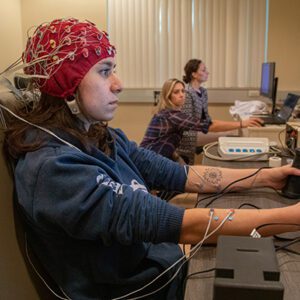
SPASTICITY
Spasticity is a common complication following spinal cord injury, and can interfere with daily activities and affect the quality of life. Miami Project scientists are conducting basic research to characterize the involuntary muscle activity (spasms) seen in people after spinal cord injury.

TRAUMATIC BRAIN INJURY
A significant proportion of spinal cord injured people also have a traumatic brain injury. A team of researchers at The Miami Project study the pathological changes in the brain after injury because many mechanisms of injury are common to both traumatic brain injury and spinal cord injury.

